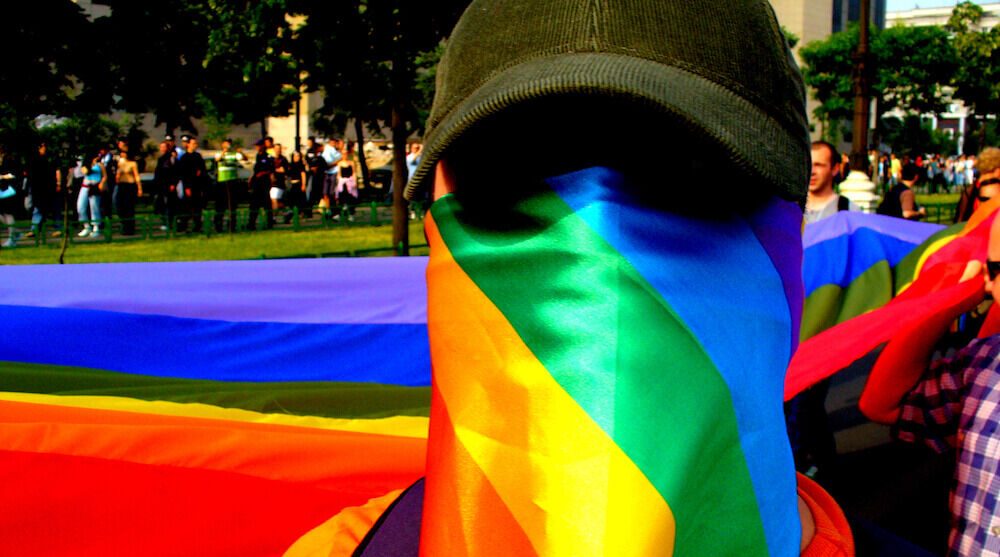In a surprise victory for LGBTQ rights in Romania, a national referendum to ban same-sex marriage has failed due to low voter turnout.
Just 20.4 percent of eligible voters cast a ballot in the two-day referendum, in which conservative groups hoped to change the language of Romania’s constitution to prevent LGBTQ couples from marrying. For the result to be considered valid by the election commission, 30 percent of voters — or 5.5 million people — were required to participate.
When polls closed at 8pm Romanian Time on Sunday, results indicate that only 3.7 million people showed up to the ballot boxes. That means the result fell short by 1.8 million votes.
Turnout was particularly dreary in the Romanian capital of Bucharest, where election data from the Central Electoral Bureau indicates that just 15.7 percent of voting-age citizens cast a ballot. That’s half the federal requirement. The lowest total, however, was in the Transylvanian county of Covasna — where just 8.5 percent of residents participated in the plebiscite.
This is a striking reversal from polling in the final days before the Oct. 6-7 vote commenced. Initial surveys suggested that approximately 90 percent of Romanians supported the referendum.
But local reports allege Romanian voters viewed the referendum as a ploy by the Social Democrat Party (PSD) to boost its poll numbers. The unpopular ruling party, which spent an estimated $51 million to push the plebiscite vote, has been mired in a series of corruption scandals involving its leadership.
Liviu Dragnea, one of the referendum’s most vocal supporters, was handed a three-and-a-half year sentence in June 2018 for redirecting government funds to pay off party members. Widely considered the most powerful man in Romania, he previously received a two-year suspended sentence — and was subsequently barred from running for Prime Minister — due to allegations of voter fraud.
Dragnea is due in court this week after appealing the most recent charges against him.
The referendum was also supported by the right-wing Coalition for Family, an umbrella organization representing more than 40 conservative organizations, as well as U.S.-based anti-LGBTQ hate groups. In 2016, more than three million Romanians signed a petition from Coalition for Family supporting the plebiscite vote.
That support didn’t materialize over the weekend. Reports allege many polling places were totally empty.
LGBTQ advocates viewed voters’ apparent lack of enthusiasm for banning same-sex marriage as an encouraging sign in a country typically dominated by the Romanian Orthodox Church.
“Romanians rejected being divided and hating each other, it is a victory for Romanian democracy, and moreover Romanians rejected the involvement of the Orthodox Church in the state’s secular affairs,” claimed Vlad Viski, leader of the LGBTQ rights group MozaiQ, in a statement.
“We believe politicians must now legalize civil partnerships for same sex couples,” he added.
Further progress on LGBTQ rights in Romania, which only decriminalized homosexuality 17 years ago, is likely to be a multi-generational struggle. It’s just one of just a handful of European Union member countries — including Bulgaria, Latvia, Lithuania, Poland, and Slovakia — that does not recognize marriage equality. It also bans same-sex couples from adopting.
Of EU member countries, the Eastern European nation ranks 25th out of 28 on LGBTQ rights, according to the advocacy group ILGA-Europe.
But there is considerable hope that the times are changing. Just days before the referendum vote, Romania’s Constitutional Court claimed same-sex partners are entitled to the rights of privacy and a family. A top EU legal advisor came to a similar conclusion earlier this year in a verdict stating that all couples under its jurisdiction are entitled to residency rights.
Photo via Wikimedia Commons/Stefan Botez
Don't forget to share:
Help make sure LGBTQ+ stories are being told...
We can't rely on mainstream media to tell our stories. That's why we don't lock our articles behind a paywall. Will you support our mission with a contribution today?
Cancel anytime · Proudly LGBTQ+ owned and operated
Read More in Impact
The Latest on INTO
Subscribe to get a twice-weekly dose of queer news, updates, and insights from the INTO team.
in Your Inbox













